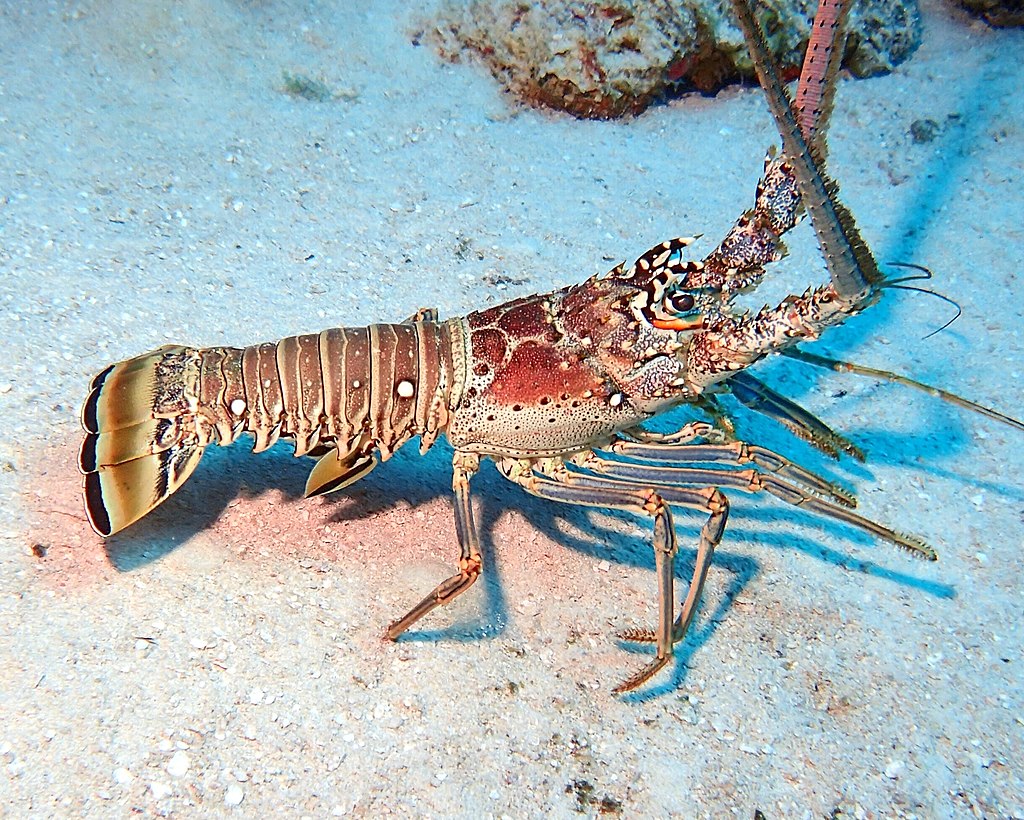Every year, thousands of people flock to the Florida Keys for mini lobster season, which takes place on the last consecutive Wednesday and Thursday of July. With the Keys being a premiere destination for recreational lobstering, it’s important to remember how we’re able to maintain a rich bounty of spiny lobsters in the first place. Not only should divers have an understanding of the harvest rules and regulations (some of which are specific to Monroe County such as no night diving), but also prioritize boating safety and marine conservation. Here are some tips for diver safety and sustainable practices during Florida’s mini lobster season.
What is Mini Lobster Season?

Mini lobster season is a special time when divers can hunt for spiny lobsters before the regular season opens. It’s called “mini” because it’s a short, two-day duration. The regular lobster season begins in August and ends in March.
Every season plays a significant role in the local economy, attracting divers, boaters, and lobster lovers from all over. However, it’s essential to adhere to the regulations set by local authorities to ensure safety and protect the marine ecosystem. Divers are urged to familiarize themselves with the rules, including bag limits, size restrictions, and prohibited areas, to avoid penalties and contribute to sustainable lobster populations.
The Florida Fish and Wildlife Conservation Commission is your best resource for rules and regulations during spiny lobster sport season. Before you go, get your recreational saltwater fishing license and a lobster permit.
Hoist the Dive Flag

Beyond the harvest rules and regulations, divers need to take care of personal safety during mini lobster season. There will be a ton of boats on the water, so dive flags are a crucial safety tool for both divers and boaters. These bright markers inform boaters that divers are present in the area, helping prevent potential accidents. There are two types of dive flags: the Alpha Flag, which signals that divers are in the water, and the Red Flag with a White Diagonal Stripe, indicating a diver-down situation.
According to Florida state law, in open water, divers should stay within 300 feet (100 yards) of a properly displayed diver-down flag. Near navigational channels or inlets, that radius should be reduced to 100 feet. The law also says boaters traveling within 300 feet of a diver-down flag in open water, or 100 feet near a channel, must slow to idle. Properly displaying these flags is essential for enhanced safety and ensuring a seamless coexistence between divers and boaters
Brush Up on Diver and Boater Safety

Safety should be the top priority for all divers during mini lobster season. Before diving down, brush up on scuba or freediving skills to avoid preventable problems such as shallow water blackout. Also, make sure all gear is in mint condition and that you’re in good physical health. Always dive with a buddy, as having a reliable companion can be a lifesaver in case of emergencies. Maintain constant communication underwater using established hand signals to convey messages effectively.
Additionally, the Florida Keys' unique marine environment poses its challenges, so divers should be aware of potential hazards, such as strong currents, sharp corals, and marine wildlife. During the July two-day sport season and regular lobster season, no snorkeling or diving is allowed within 300 feet of residential or commercial shoreline. This includes canals and any public or private marinas.
Boaters play a vital role in ensuring the safety of divers during this mini lobster season. When you’re on the water, keep a watchful eye for dive flags and slow down in areas with diving activities to provide ample space for divers to explore. Remaining aware of your surroundings can prevent potential accidents and protect both divers and boaters. Navigating the waters of the Florida Keys is tricky! It’s never a bad idea to brush up on local boating rules and regulations with a free online education course offered by the Florida Keys National Marine Sanctuary.
Preserving the Unique Habitats of the Florida Keys

With an influx of boaters and divers flocking to the Florida Keys, it’s important to be mindful of the beautiful marine ecosystem. Coral is essential to the ecology (and economy!) of the region. It’s against the law everywhere to touch coral, stand on coral, or anchor on it.
Use mooring buoys where available and be mindful of where you kick your fins to avoid damaging fragile corals and seagrass beds. Resist the urge to touch or disturb marine life, as many species are sensitive and easily stressed. Yellow buoys indicate preservation areas and special-use research-only areas, which are closed year-round for harvesting and are no-take zones. Preserving these unique habitats contributes to the conservation of our underwater paradise.
Sustainable Lobster Harvesting

Sustainable lobster harvesting is essential to maintain healthy lobster populations for future generations. Adhere to size and bag limits to ensure that smaller lobsters have a chance to grow and reproduce. Employing proper catching techniques, such as using a tickle stick or net, reduces stress on the lobsters and the surrounding marine environment. By harvesting responsibly, everyone can continue to enjoy this tradition while safeguarding the delicate balance of the marine ecosystem.
For more information about lobster harvesting, read through the rules provided by Florida Fish and Wildlife Conservation Commission.

Mini lobster season is an exciting time of year! Let's remember that safe diving and sustainable practices go hand in hand. By following the guidelines, using dive flags responsibly, and respecting the marine environment, we can continue to enjoy this unique experience while preserving the beauty of the Florida Keys.
Grateful Diver and Grateful Angler are committed to protecting our coral reefs and native marine species through resourceful and sustainable methods. As you enjoy mini season, make sure you’re protected from the elements with our UV shirts, neck gaiters, or hats. A portion of every purchase benefits Reef Relief, which helps maintain healthy and sustainable habitats for marine life.

